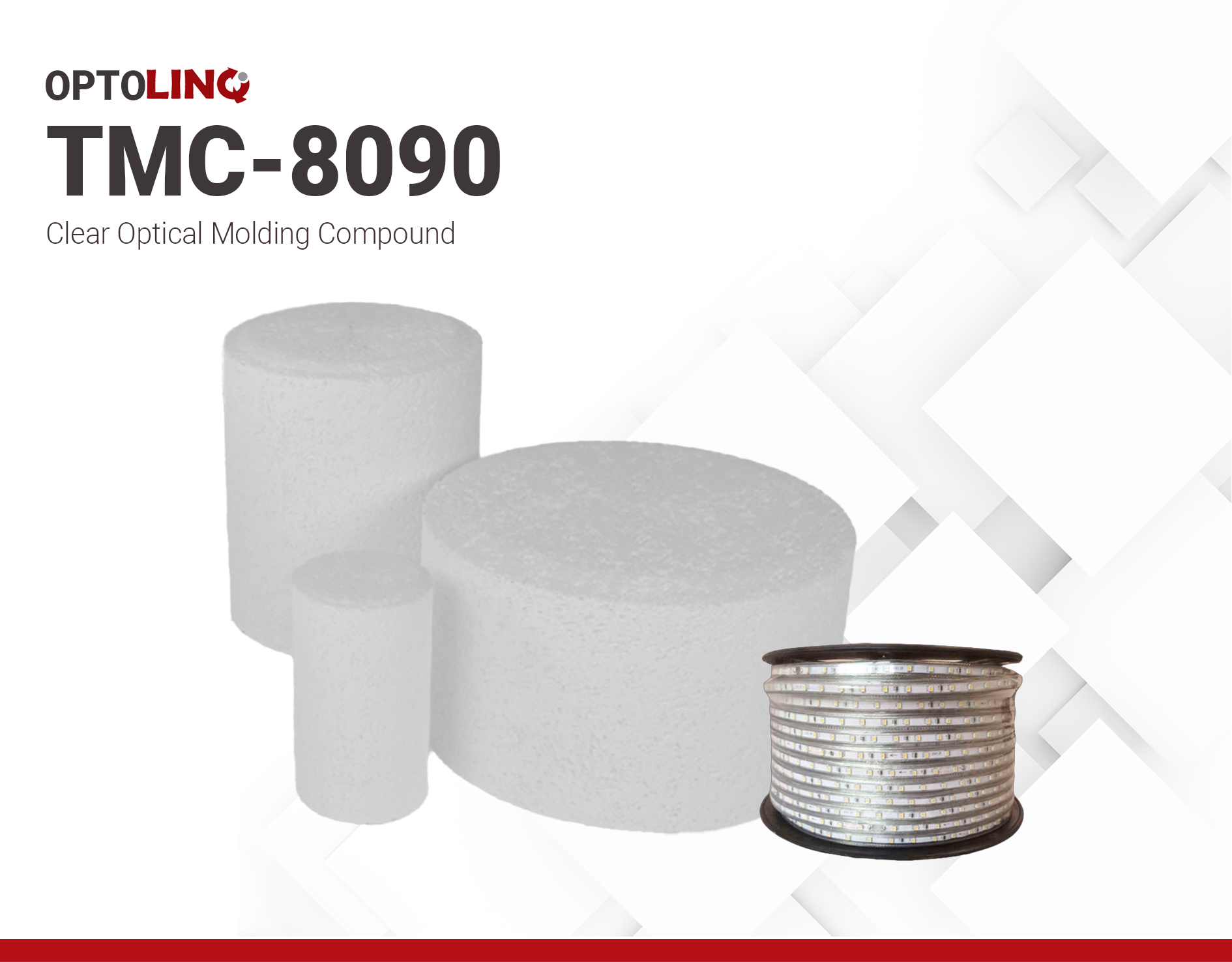TMC-8090 | Clear Optical Molding Compound
- High reliability backlight LED
- Anti moisture
- Low blue ray decay
Product Description
OPTOLINQ TC-8090 is a high-performance optical epoxy specifically developed for white decorative and high reliability backlight LED encapsulation, just like TC8030 and TC8060. This mono-component epoxy achieves superior adhesion performance and great transmittance. It is an anti moisture formulation that is stable at high temperatures combining good package performance and long life.
TMC-8090 is able to offer low blue-ray decay for outdoor LED applications and overall great light performance with >90% transmittance at 450nm. This is a developmental product, similar or superior to competitive solutions such as XX814, XX1000 and XX97. It is a highly reliable product that passes reflow thermal cycling test at 85°C @85%relative humidity and its light decline is <10% in RT/5mA @1000hrs.
Technical Specifications
| General Properties | |
| Refractive index Refractive index The refractive index determines how much the path of light is bent, or refracted, when entering a material. It is calculated by taking into account the velocity of light in vacuum compared to the velocity of light in the material. The refractive index calculation can be affected by the wavelength of light and the temperature of the material. Even though it is usually reported on standard wavelengths it is advised to check the TDS for the precise test parameters. | 1.53 |
| Specific Gravity Specific Gravity Specific gravity (SG) is the ratio of the density of a substance to the density of a reference substance; equivalently, it is the ratio of the mass of a substance to the mass of a reference substance for the same given volume. For liquids, the reference substance is almost always water (1), while for gases, it is air (1.18) at room temperature. Specific gravity is unitless. | 1.28 |
| Thermal Properties | |
| Glass Transition Temperature (Tg) Glass Transition Temperature (Tg) The glass transition temperature for organic adhesives is a temperature region where the polymers change from glassy and brittle to soft and rubbery. Increasing the temperature further continues the softening process as the viscosity drops too. Temperatures between the glass transition temperature and below the decomposition point of the adhesive are the best region for bonding. The glass-transition temperature Tg of a material characterizes the range of temperatures over which this glass transition occurs. | 140 °C |
| Chemical Properties | |
| Water Absorption | 0.23 % |
| Curing Conditions | |
| Transfer Pressure | 10 - 40 kg/cm2 |
| Transfer Time | 20 - 50 s |
| Physical Properties | |
| Spiral Flow @ 175°C | 150 - 250 cm |



